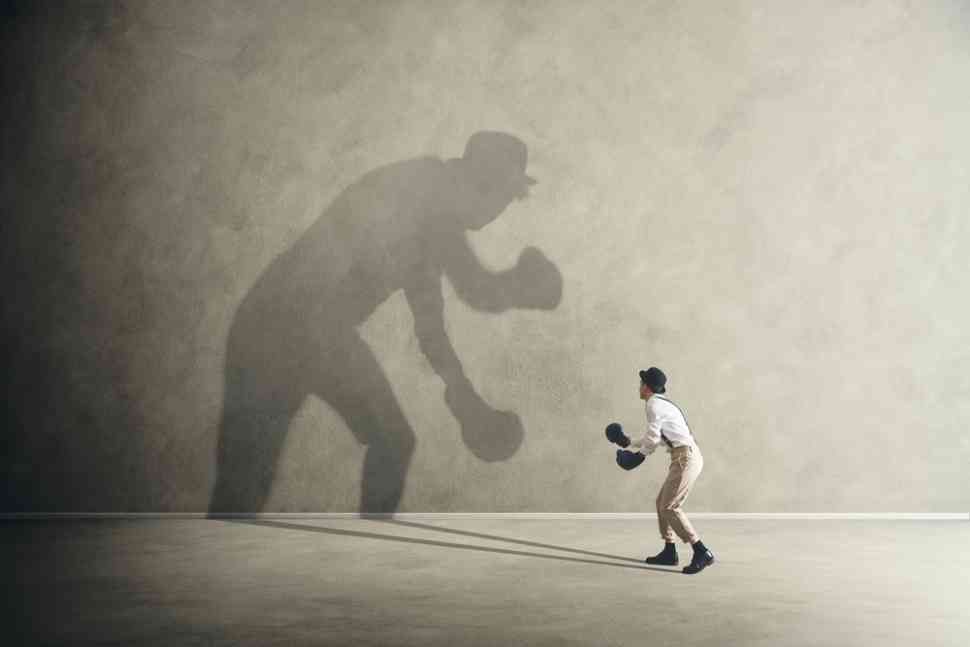Fear vs Phobia – Mechanism for Protection or Self-Destruction?

Fear is the negative feeling that every person experiences if they realize the existence of a threat. Although it is considered an unpleasant and intense feeling, it acts as a mechanism of survival and self-protection since it activates the instinct of “self-protection” and puts us in a state of defence without the need for any kind of conscious process to activate our reflexes, in order to react to danger. It is an ally that protects us from dangers since it motivates us to avoid what threatens us and pushes us into action when we are in danger. All mammals and the human species would have been wiped out had it not been for fear to act as an incentive to ensure a safe environment for our survival. But while in animals, it functions purely as a survival mechanism, in humans today, it has become a mechanism of self-destruction. And this is because there is a significant difference between the human species and the rest of the mammals. In animals, when the danger subsides, they immediately return to the normal continuity of their daily lives. At the same time, human beings continue to be possessed by fears. What is the reason for this? Human intelligence, which, while it is undoubtedly useful, nevertheless produces negative thoughts occasionally. According to the use of these thoughts, human happiness and misery will appear in the individual’s life. Misusing our thought is the mother of our misery because it produces our phobias. Our phobias generated by our negative thoughts are unpleasant and highly dysfunctional emotional reactions. This creates situations which limit our lives and trap us without offering us any protection, as it happens in cases of fear. When we think about the future, our phobias often appear. We imagine possible risks and situations which we evaluate as threatening. Then we experience fear and anxiety; physical reactions occur, which manifest as phobias.
It is important to understand that phobia is a psychological fear, based on negative thoughts, of a possible (for the time being non-existent danger). This destroys our peace of mind in the present and blurs our critical thinking so that we do not correctly assess the circumstances. Therefore we fail to make the right decisions in our life challenges. Psychological fear can often make us lose control, leading to risky behaviors and situations. Phobias can also come from childhood traumatic experiences or deeper issues, existential fears, and insecurities, which we have not adequately processed. Everything that brings these insecurities to the surface creates anxiety and fear. In any case, they refer to possible risks and difficult situations, which are rarely ever rational. Our negative thoughts are due to our insecurity, creating fear and anxiety. We try to create the illusion of security by establishing a security basis consisting of people, money, objects as well as professional and social status, wider acceptance, and recognition.
Then, we experience the second tier of fear and begin to fear that we may be unable to obtain all we strive for. At the same time, we are afraid that if we get all this, we may lose it, and we are afraid of others who could take it from us. Also, we are afraid of change, which can make our possessions disappear, and most of all, we are afraid of death, which means losing them all. But fear is a symptom that comes to awaken us, and awakening comes when we face the fears that are inside our minds. We cannot fight our fears using external material objects and situations. When we find the courage to look our fears directly in the face, we will also be able to take the courage to accept those fears. Fear is as if it wants to prevent us from seeing it in the face. That is why it pushes us towards an object or a relationship, workaholism, abuse, perfectionism (because so we have the illusion of control), a state of mind, or something else that will distract us from the fear.
Have you read?
The world’s top 20 most travel-obsessed countries, 2023.
The most Twitter-obsessed countries revealed, 2023.
The world’s top 10 most popular luxury brands for 2023.
The most fast food-obsessed countries in the world, 2023.
Who Are the Richest Sports Owners in the World, 2023?
Bring the best of the CEOWORLD magazine's global journalism to audiences in the United States and around the world. - Add CEOWORLD magazine to your Google News feed.
Follow CEOWORLD magazine headlines on: Google News, LinkedIn, Twitter, and Facebook.
Copyright 2025 The CEOWORLD magazine. All rights reserved. This material (and any extract from it) must not be copied, redistributed or placed on any website, without CEOWORLD magazine' prior written consent. For media queries, please contact: info@ceoworld.biz








